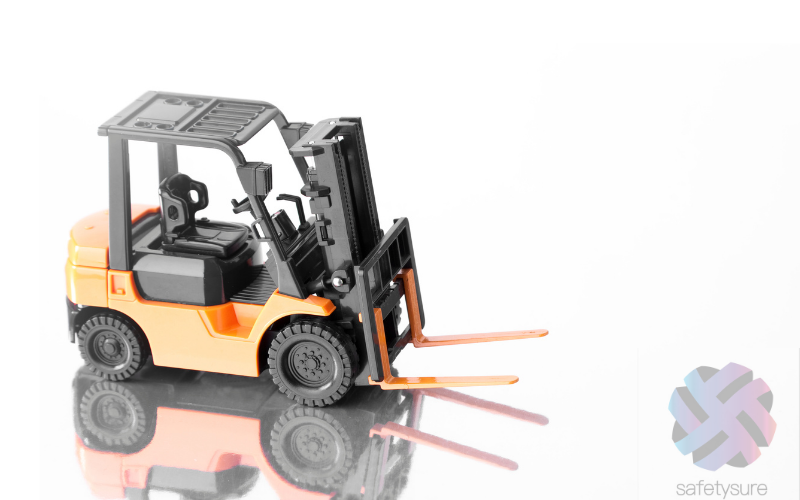A Queensland court has convicted a small business owner for industrial manslaughter under the Work Health and Safety Act 2011 (Qld). The sentence of five years in prison (down from 20 years) will be suspended after 18 months but serves as a dire warning to small business owners for failure to meet obligations under the Queensland work health & safety legislation.
What happened that resulted in the conviction under the Work Health and Safety Act?
A small business owner was operating a forklift unlicensed to unload a three-tonne generator from a truck. The load was approximately 300 kg beyond the capacity of the forklift.
A friend of the small business owner (ultimately a volunteer at the workplace) was assisting to unload the generator by placing dunnage on the underside of the generator. There were no work health safety systems in place at the workplace to mitigate potential risks involved in the activity.
When the business owner raised the tines of the forklift, the forklift tilted forwards and the back wheels came off the ground. The generator slid sideways off the forklift and struck the volunteer who sustained fatal injuries.
The business owner was charged with industrial manslaughter under s 34C of the Work Health and Safety Act as a ‘person conducting a business or undertaking’ (PCBU) who negligently caused the death of the volunteer at the workplace.
The work health and safety prosecutor conceded that the small business owner did not have significant financial resources to operate a sophisticated safety system, but the absence of resources did not preclude the business owner to establish an exclusion zone when carrying out a task that was known to be high risk.
Small business safety obligations
In fact, the failure of the business owner to take measures to control the risk, in some way demonstrated his negligence. Exclusion zones do not cost money, nor do they require significant time in planning to implement. The court also heard that safe, alternative methods of unloading the generator were available at a low cost.
The prosecution specifically alleged that the defendant’s conduct was negligent because:
- He was not licenced to operate a forklift.
- The business operated by him did not have any documented health and safety procedures concerning the use of the forklift to unload heavy equipment.
- The forklift had a lifting capacity that was inadequate for its use in unloading the generator.
- The defendant failed to make proper enquiries as to the weight of the generator.
- The generator was not designed to facilitate it being lifted by a forklift.
- The defendant failed to designate an exclusion zone preventing pedestrian ingress into the area where the unloading of the generator was to take place;
- The defendant failed to provide proper instruction, training or supervision to the other worker to ensure that he remained at a safe distance from the suspended generator.
- It became apparent during the attempted unloading process that the forklift’s lifting capacity was inadequate for the task, however, the defendant persisted, including while a worker was positioned to the rear of the forklift; and
- Safe, alternative methods of unloading the generator were available at a low cost.
In finding the defendant guilty, the jury was satisfied that the defendant’s conduct was negligent and that it caused the death of the worker on whom the generator fell.
In sentencing the defendant, His Honour Judge Cash QC observed that while the deceased worker had placed himself in harm’s way, that did not relieve the defendant of his responsibilities.
His Honour noted that the sentence to be imposed needed to reflect considerations of punishment, general and specific deterrence, and denunciation, as well as the defendant’s lack of previous convictions, remorse, and other personal circumstances. It was also relevant that since the incident the defendant had put in place all necessary measures to address the concerns identified.
What does this case mean for business?
There is ample evidence from this case and others (e.g R v Brisbane Auto Recycling Pty Ltd & Ors) that work health & safety regulators will pursue action where a small business owner is negligent in their duties as a PBCU (Person In Control of a Business Unit) despite not have the significant financial resource to implement health & safety systems.
The case is a judicious reminder to be observant in identifying, implementing, and controlling risks (including those to non-employed personnel).
If you’d like some small business safety advice or understand your small business safety obligations, why not chat below or call us on 1300 087 888.







Leave A Comment